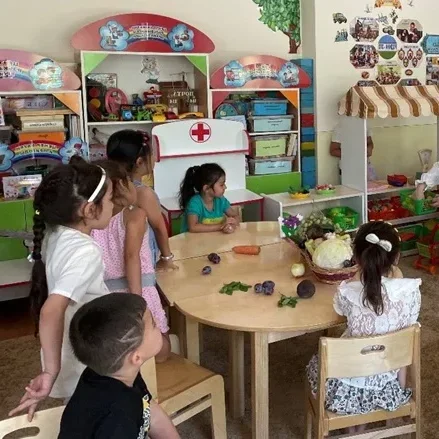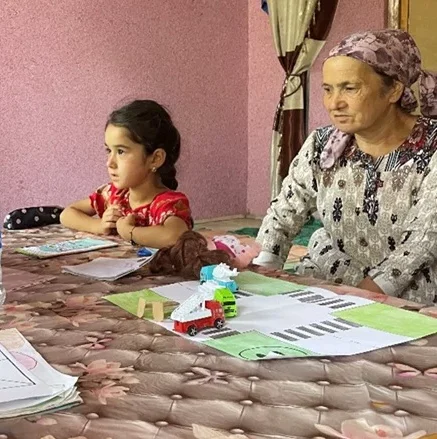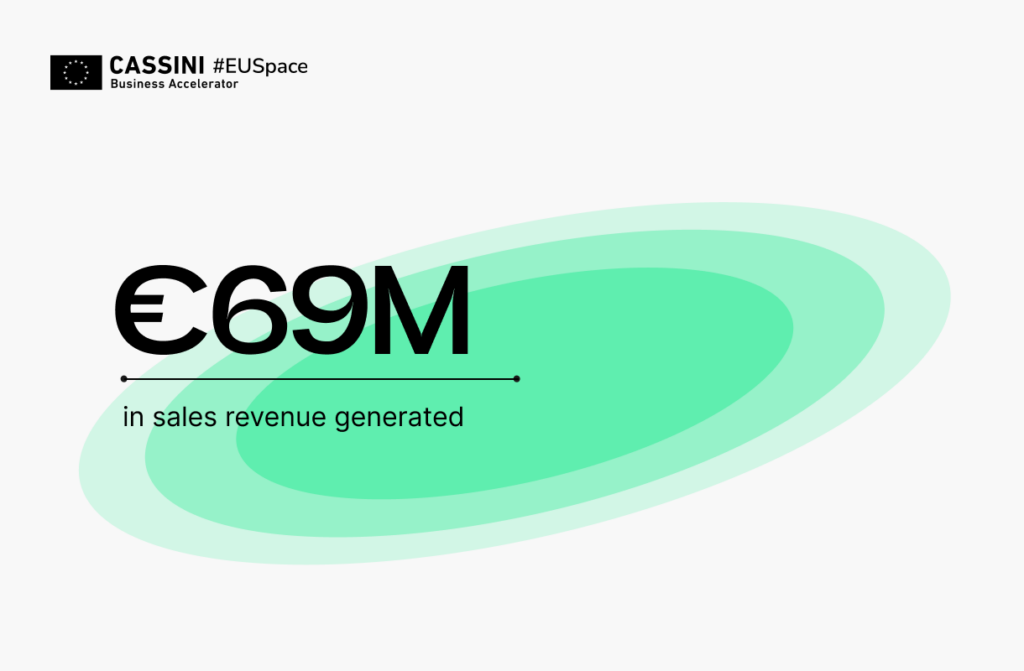How innovative approaches are transforming preschool education: our experience in Uzbekistan
Client
Ministry of Preschool and School Education of the Republic of Uzbekistan and World BankClient overview:
The Ministry of Preschool and School Education is the primary government body responsible for overseeing early childhood and general education in Uzbekistan. As part of the country’s broader education reform agenda, the Ministry is working to expand access to quality preschool education, with a focus on underserved and remote communities.
In partnership with the World Bank through the Promoting Early Childhood Development Project, the Ministry piloted four innovative ECD models aimed at improving school readiness for children not covered by traditional preschool systems. Civitta was brought in to assess the implementation and cost-effectiveness of these models, generating evidence to guide decisions on national scale-up.

Challenge:
At the time of this case study, Uzbekistan was actively working to expand preschool access. While the reform had already made significant progress, many children — especially those in remote, rural, or underserved areas — still lacked access to early childhood education. Traditional preschools simply didn’t reach every child. To address this gap, the Ministry introduced four innovative models aimed at supporting children often left behind:
- Home Visiting Program. Trained staff visited families with children aged 0–6 to help parents support early learning at home.
- Playgroups. Small, community-based learning sessions for children aged 3–6.
- Inclusive Home Care. Targeted support for children with disabilities to help them prepare for school.
- Aqlvoy Mobile Kindergarten. Fully equipped mobile classrooms that brought preschool education to the most remote areas.
Our task was to evaluate how well these models worked: Did they reach the children most in need? Were they cost-effective? Could they be scaled nationwide? And most importantly — did they help children learn and develop?
This evaluation was essential because these models were designed to serve the most vulnerable populations. By assessing their effectiveness, we helped the government identify which models truly work, are sustainable, and worth expanding.
The project had its challenges. We worked on a tight timeline, had to tailor tools to informal settings, and accounted for the cultural and linguistic differences between Samarkand and Namangan regions. We also collaborated with a wide range of stakeholders, including parents, teachers, local leaders, and government agencies, to get a full picture of how the models functioned in practice.
Our approach:
To meet the Ministry’s need for a rigorous and actionable evaluation, Civitta designed and conducted a comprehensive mixed-methods study that combined quantitative, qualitative, and economic analyses. Our approach was tailored to address the unique features of each Early Childhood Development (ECD) model while delivering clear insights to guide policy decisions. Our evaluation included several key methods:
- Participatory and contextualized: We collaborated closely with Ministry stakeholders, adapting our fieldwork and tools based on feedback from local communities and considering differences in language, culture, and access.
- Quantitative tools: The MELQO MODEL and AIM-ECD assessments measured children’s literacy, numeracy, executive functioning, and socio-emotional skills. Surveys of caregivers and teachers collected data on parental engagement, home learning environments, and teaching quality. Statistical analysis helped identify trends across models and regions.
- Qualitative tools: We conducted case studies, focus groups, and interviews with program providers, parents, and local community leaders. Classroom observations using the TEACH ECE and MELQO MELE tools assessed the quality of the learning environment.
- Cost-benefit analysis: We carried out a detailed economic evaluation by calculating the net present value (NPV) and Internal rate of return (IRR) of each model.
Our evaluation targeted Samarkand and Namangan for their diverse contexts, involving interviews with over 1000 people, including children, teachers, caregivers, and control groups. We kept close communication with the Ministry and World Bank, providing regular updates and jointly reviewing findings to ensure alignment.
We localized global evaluation tools by adapting them into Uzbek, Russian, and Tajik dialects to reflect the cultural and linguistic diversity of the communities. Our inclusive analysis also accounted for children with special educational needs. We adjusted our methods in real-time to ensure accurate data and meaningful results. Crucially, the evaluation was designed for scalability, providing insights to guide nationwide policy and support wider reform efforts.



Results & impact:
The Civitta evaluation provided a holistic view of the impact, effectiveness, and equity of four alternative models for delivering early childhood development services. The results clearly demonstrated that these models not only improved early learning outcomes but also offered a high return on investment, particularly for low-income populations.
Based on Civitta’s evaluation, the Ministry, jointly with the World Bank, is now preparing to launch the second phase of the “Promoting Early Childhood Development” project, focusing on scaling up the most effective models across all regions of Uzbekistan.
Key takeaways:
Civitta’s evaluation offered practical insights into what works, where it works best, and for whom—directly informing the Ministry’s strategy for scaling up early childhood programs.
It combined international best practices with real-world conditions. In addition to assessing impact, a cost-benefit analysis supported the Ministry and the World Bank in understanding the long-term economic value of each model and justifying the public investments into the second phase of the project.
Uzbekistan’s experience shows that flexible, community-based early learning models can be both scalable and effective, particularly in areas where traditional infrastructure is limited. This project stands as a strong example of how well-designed innovations—backed by data and close collaboration with stakeholders—can move from small-scale pilots to shaping national policy and driving system-wide transformation.



